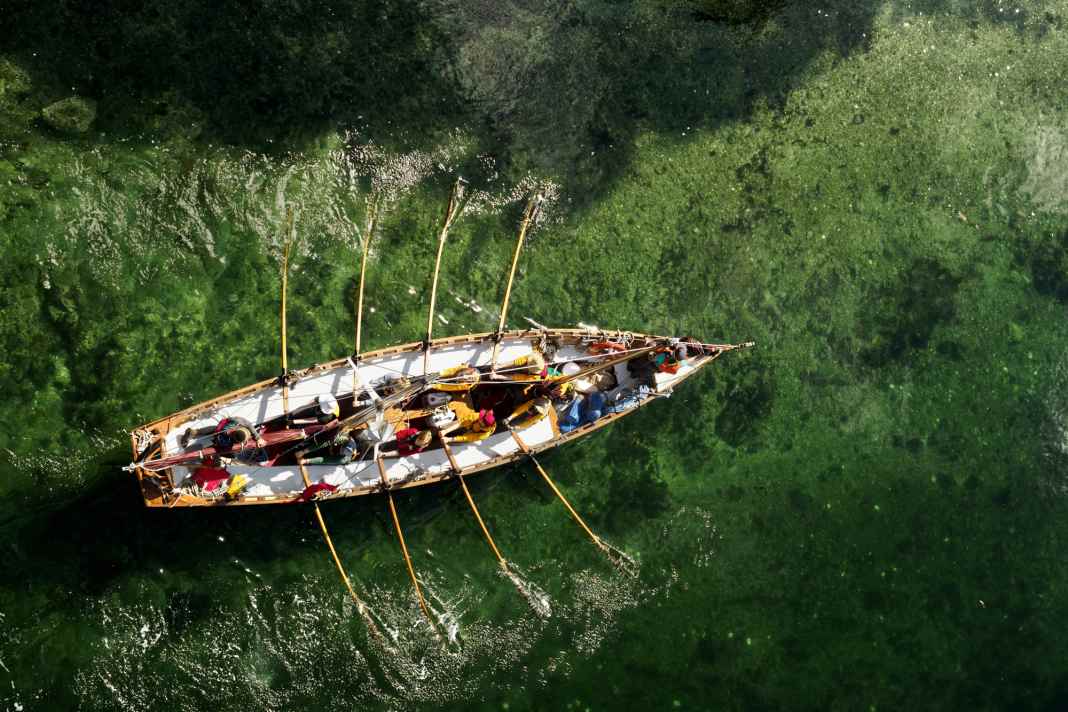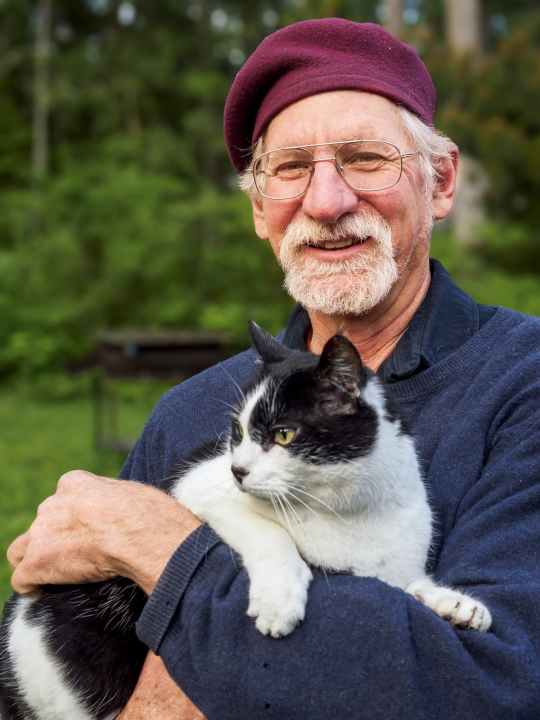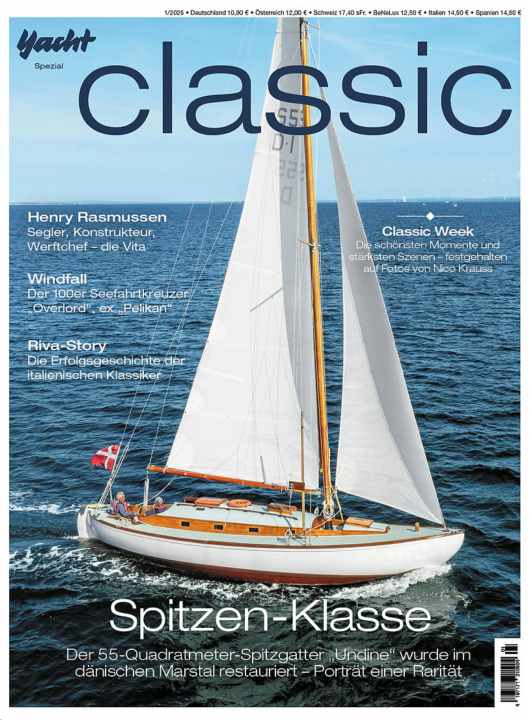Longboat "Epic": When travelling in an open boat becomes a school of life
Dieter Loibner
· 09.08.2025






One-two-three-four ..." The voices of the young crew echo across the water and the cedar oars bend alarmingly. Everyone is working hard to row to the beat and push their longboat "Epic" forwards against a strong current. At this moment, at the start of a five-day journey through the waters of Puget Sound in the US state of Washington, the fruits of the crew's previous joint training are becoming apparent. The aim was not to tick off as many miles as possible, but to consolidate what they had learnt in practice. And about teamwork, independence, leadership behaviour and a break from screens and entertainment electronics.
Also interesting:
The participants rotate between all the jobs on board and ashore, taking turns as boatswain, navigator, mate or naturalist. A health officer looks after nutrition and sun protection. And everyone has their turn to take command, delegate tasks and stand at the helm during harbour manoeuvres. At the end of the day's work, everyone sits around the campfire to share their impressions and experiences and to criticise themselves and their colleagues respectfully and constructively. Even without military drills, the discipline necessary for smooth operation prevails.
Community Boat Project offers experiential education
Without saying it directly, the organisers refer to an experiential education that is at least partly inspired by the ideas of the German reform pedagogue Kurt Hahn. The co-founder of the Schloss Salem boarding school devised an educational concept which, in addition to academic knowledge, was also intended to impart a sense of responsibility, co-operation and a willingness to act. The way to achieve this is through communal activities in the great outdoors, such as hikes in the wilderness, climbing adventures or even trips in an open boat. The training objectives are always the same: self-discovery, dealing with success and failure, community over individuality and consciously renouncing privileges.
After being arrested and expelled by the National Socialists, Hahn emigrated to England, where he continued his career as an educator, founded schools and in 1941, together with Lawrence Holt, laid the foundations for Outward Bound, today one of the world's largest organisations for educational adventure trips.
The training cruise with longboat "Epic" was organised by the Community Boat Project in Port Hadlock, a non-profit organisation that offers free carpentry courses for middle school students and also teaches sailing, rowing and marine science to students under the banner of the Puget Sound Voyaging Society. "Long distances are less important than the opportunity for participants to gain experience," explains chief instructor Nahja Chimenti, 36, a trained sailmaker and the person in charge of this adventure trip. "If they have to exert themselves too much on the way to the day's destination, there is less time for enjoyment." This is why the daily distances were limited to very moderate distances of three to five nautical miles.
Use of electronic devices is undesirable
Chimenti grew up on board the 48-metre square-rigged sailing ship "Tole Mour" and at the tender age of three accompanied her father, Wayne, then captain of the ship, into the yards because she insisted on celebrating her birthday at lofty heights. The family later settled on Marrowstone Island north of Seattle, where they are partly self-sufficient and live on a sprawling estate, where, in addition to simple wooden houses with compost toilets, there is also space for an organic farm, a sailmaking workshop that supplies traditional ships and a geodesic sphere for concerts, readings and yoga classes.
After "Tole Mour", Wayne took over the captaincy of the 41-metre training schooner "Adventuress" in Seattle and played a leading role in the founding of the Community Boat Project and the Voyaging Society, which he chaired for many years. Free learning is not a matter of course in the USA, but so far the Community Boat Project has managed to cover its costs with government grants and support from companies and private sponsors.
"That's the great thing about Port Townsend," says now-retired captain Wayne Chimenti. "Ingenious builders like Kit Africa, Jim Franken and Ed Louchard volunteer their time and draw everything on a napkin. Then there are master boat builders like Jeff Hammond and Ray Speck, who also give up their time to teach." But because there is a glaring need for affordable housing even in this somewhat remote area, the students are currently mostly building tiny houses.
"Learn something, do something and teach others," says Nahja and laughs. As an instructor, she says, she must not stand in the students' way. It is important to give them freedom of action so that they learn to perfect processes, think for themselves and present their own suggestions to the whole group. The use of electronic devices, with the exception of those for navigational purposes, is undesirable. Participants must therefore keep their own moorings and always record the current position of the boat on paper nautical charts.
Longboat "Epic" built by students
This is perfectly suited to a vessel such as the longboat "Epic", a modern version of the traditional gigs used by European explorers such as George Vancouver to explore the coastal waters in detail during the colonisation of North America.
The 9.70 metre long boat has a staysail schooner rig that can carry up to 37 square metres of canvas. It can also be propelled by eight oars. The flat-bottomed hull was designed by Ed Louchard and built by students from plywood epoxy, with an outer skin of GRP. A centreboard helps to turn up and can be pulled up in shallow water or for beach landings.
"Starboard stop, port forward - go!" were the orders given by Emilia Ramsey, 20, who is in command on the journey from Fort Flagler to Mystery Bay and, to celebrate, has the small dinghy spinnaker set to be ridden on the foremast. Like her colleagues, Ramsey attended local schools and chose a hands-on curriculum with a nautical focus. She then took time out to refurbish "Dorjun", an eight metre long wooden boat with a clinkered hull. It was built and used as a lifeboat on the east coast in 1905. Emilia was bequeathed "Dorjun" by the Northwest Maritime Centre with the task of restoring it.
Courses help with personal development
"I took part in the Girls' Boat Project and Bravo Team and then completed an internship in sailmaking," she says of her career to date. At the Community Boat Project, she met Gabriel Hefley, 21, who followed a similar path. "These programmes help with personal development and the rest of your life," says Hefley.
But there is no talk of this at the end of the first day of the trip, as the crew pushes the longboat "Epic" onto the beach at Kinney Point with their combined strength. "A trip like this takes you out of your personal comfort zone," says Dylan Smith, 29, who is supporting Chimenti as mate on this trip. "It's okay to struggle and make mistakes, but older students help by taking younger ones under their wing - an important aspect."
Young talent problems since Covid
Three days later, after circumnavigating Marrowstone, the weather changes and the journey is shortened for safety reasons. At times it poured with rain and storms were forecast. But twin sisters Eugenia and Viola Frank, 21, keep their spirits high. They are on a college holiday and are taking part in this trip as graduates of the programme. "We had friends in the Community Boat Project at school, so our mum just signed us up," recalled Eugenia. "After a few years, we were promoted to assistants and stayed until we graduated," says Eugenia. And Viola, who was born one minute after her sister, adds from her perspective that this programme gave her "a head start and inspired the choice of studies because I could study nature and spend time outdoors".
However, the fact that graduates of the programme sign up for a trip with much younger students indicates that there is a recruitment problem: Other organisers of similar tours have had to shut down since Covid due to a lack of participants, and the Puget Sound Voyaging Society also has to watch to make sure the classroom is full. According to the website, up to 45 students are to be supervised each year, with ten paid internships also being awarded.
With the active help of volunteers, the students have so far completed six boats and 18 tiny houses. "Our focus is on students holding tools in their hands and creating something," explains Managing Director Brent Bellamy, Wayne Chimenti's successor. In addition to craftsmanship, says Bellamy, the Community Boat Project also teaches civic initiative and social skills.
In addition, boat trips lasting several days will continue to take place, where the participants not only row and sail, but also learn team spirit and leadership behaviour and gain the self-confidence to take their future into their own hands. Sensitive sail trim and powerful use of the oars metaphorically symbolise life, which, as we all know, is not all bag breezes and pushing current.
Wayno's World - Community Boat Project

Wayne "Wayno" Chimenti is a cult figure of the traditional sailing scene in the Pacific Northwest of the USA. He gave up his career as a marine scientist for freedom at sea, instead learning the rigging and sailmaking trade and serving his way up to schooner captain. Having grown up on the US East Coast, Chimenti met his wife Nicole, a native of Belgium, on the island of Moorea in French Polynesia, where they met in 1984 during the production of the film "Bounty" with Mel Gibson, Anthony Hopkins and Laurence Olivier. With their daughter Nahja, born in 1989, the family sailed on board the schooner "Tole Mour", which at the time was providing medical care for the Marshall Islands in the Western Pacific.
When it was time to move from the high seas to land, the Chimentis opted for Port Townsend. "My God, this is a sailing town!" Wayne recalled of his first impression of his new home. In addition to setting up the Force 10 sailmaking shop, he skippered local training cruises on the B.B. Crowninshield schooner "Adventuress" and, together with educators and the boatbuilding school in Port Hadlock, founded the Community Boat Project and the Puget Sound Voyaging Society. In the beginning, the students built open boats under the guidance of professional boat builders, as well as the longboat "Epic", the flagship of the programme.
But over time, more and more small wooden houses were built. This is quicker and helps to alleviate the acute housing shortage for low-income sections of the population. "We have a fixed circle of donors, mostly foundations," explained Chimenti, who has since retired. "All programmes, both in the workshop and on the water, are always free of charge for the students. We are not trying to train sailors, but to teach them how to develop the self-reliance and determination that used to be necessary for survival."

This report was published in the current issue of YACHT classic, which has been on sale since 21 May (also available here). YACHT subscribers get the magazine delivered to their door for free. You can also read the portrait of shipyard founder Henry Rasmussen, the history of the "Nordwest" and look back on Classic Week 2024 in photos by Nico Krauss.

